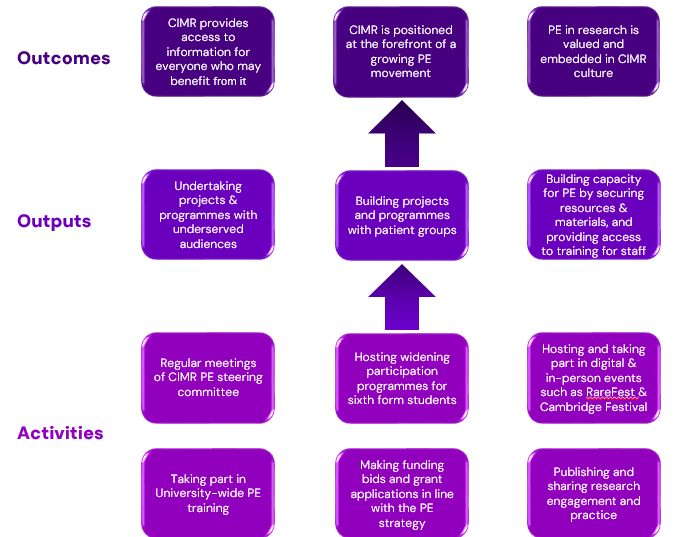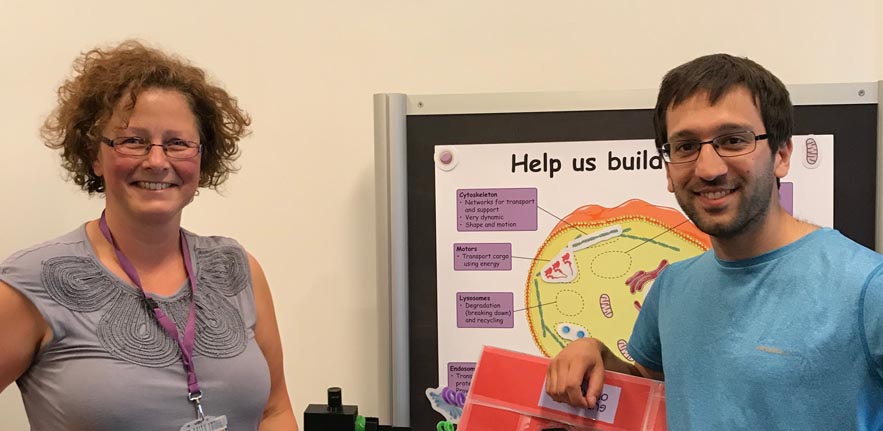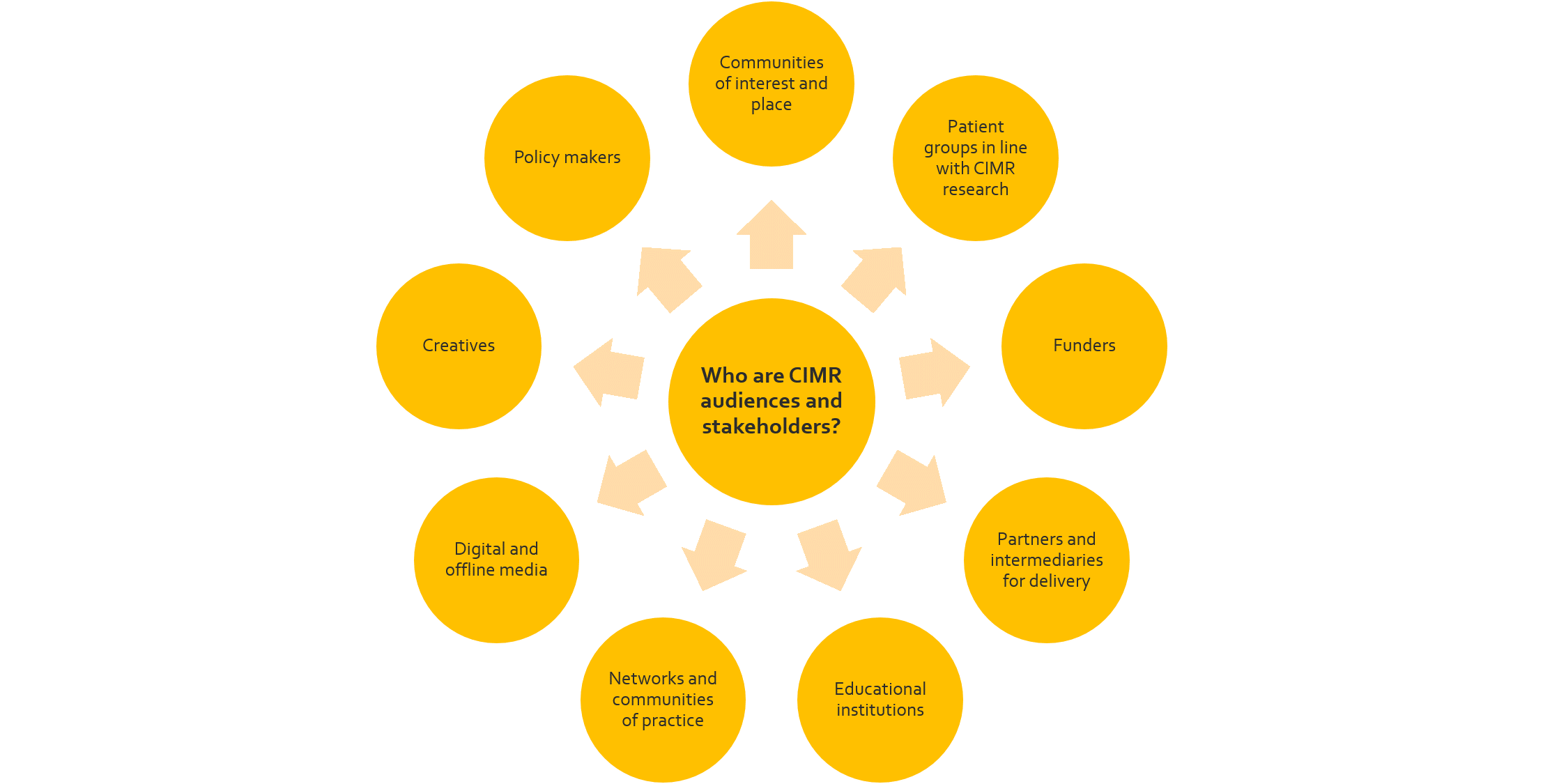Public Engagement strategic aims at CIMR
Our PE strategy provides a roadmap, consisting of a set of guiding principles or rules, that helps define the actions staff and students in CIMR should prioritize in PE to achieve desired aims and PE vision. In order to enable direction setting, our strategic purpose, vision, and value network has been researched and mapped out in the overall PE strategy. This allows us to quickly respond to cultural movements and facilitate Institute growth. The activities in our strategy will be prioritised to diversify CIMR PE projects and programmes. This will create more opportunities for two-way discussion, debate, exploration, and collaboration; opening research to enhance trust in science, and giving consideration to responsible and ethical implications of research.
CIMR public engagement strategy summary
Widening Participation
CIMR is actively involved in the University of Cambridge widening participation (WP) initiative and increasing social mobility. We do a lot of work in widening access to tertiary education, including participation in the the University's Aspiring Scientists Training Programme, coordinated by the Gurdon Institute. We also run our own programme, Inspiring Scientists at CIMR and MBU, for Cambridgeshire sixth form students.
These programmes work with people underrepresented at the University of Cambridge from a widening participation (WP) perspective, as well as groups that CIMR is yet to interact with, or groups which CIMR does not currently focus significant resource. The CIMR also considers WP as new ways of working with existing groups as highlighted in the five approaches to opening up science research by NCCPE and the National STEM Forum.
Patient and Public involvement and engagement
The CIMR actively takes part in patient group engagement and involvement events and programmes. We are a unique Institute with researchers and clinicians working to find solutions for diseases within our research strategy. Our Institute's research is driven by three medical themes:
1. Rare genetic diseases
2. Neurological diseases
3. Intracellular infections and immunity
We use biological approaches to deepen our understanding of these diseases. As a result, our engagement and involvement with patient groups is focussed around these themes. We have researchers at different stages of the R&D pipeline, with some of our PIs having their own spinout companies. Find out more about our Research Strategy here.
We are often found at events such as RareFest run by the Cambridge Rare Disease Network where the public has the opportunity to ask questions directly to our researchers. Below is a talk given by Professor Stefan Marciniak for Mesothelioma UK: “Using nanotechnology to treat Mesothelioma”
Public Engagement training and professional development
The CIMR is keen to encourage and embed public engagement as part of our positive research culture. As we are part of the University of Cambridge staff and students are eligible to attend the free Engaged Researcher series. The training covers specific public engagement aspects from advanced evaluation, enagaging with policy, school audiences, and animating research. In 2020 Dr Michael Weekes won the VC Collaboration Award in research impact.
And our 2020 Collaboration Award winners are… #VCAwards2020 @TheCIMR @CamInfectDis @Cambridgeimmuno pic.twitter.com/9OeZiOuHSi
— Cambridge University Public Engagement (@CamUniEngage) October 5, 2020
Other central professional development and recognition awards also include:
- The Vice Chancellor Impact and Engagement awards
- Cambridge Creative Encounters
- The Cambridge Festival
CIMR public(s) or value network:
From current external analysis on the funding landscape and with goals of widening participation, audience groups have been prioritised at CIMR. These evolving drivers come from movement in the PE funding landscape with external stakeholders, best practice, as well as an overarching goal of strategic engagement growth:




